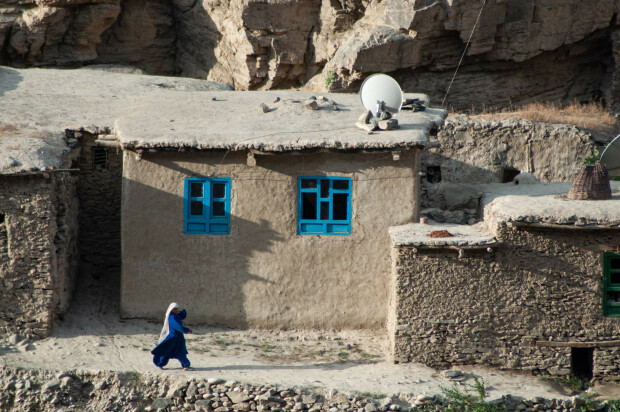
The bomb attack
The bomb attack
(11 May 2018)
I'm sitting on our terrace in Afghanistan, enjoying a large cup of tea and pleasant weather with a gentle breeze. Due to the security issues in the area, we live on the hospital grounds. Most likely, the majority of the world population considers it completely insane to voluntarily work in Khost, Afghanistan. Especially after what happened on Monday this week (perhaps the news reached you as well, it was on the BBC and all over the world). There was an attack on the mosque, just 100 meters from our hospital. People were registering there to vote in the upcoming elections at the end of this year. Seventeen people died, and more than 30 were injured...
The Taliban is known for trying to disrupt the democratic processes in this country as much as possible, but they deny any involvement. Islamic State (IS) is also present here, so we simply don't know who is responsible. I was in the delivery room dealing with a difficult birth when it happened. A very loud explosion, and the midwives started crying and calling their families - unfortunately, this has become normal for them.
I urged them to pull themselves together. We were in the middle of a delivery (a vacuum-assisted birth for a baby who was having trouble coming out), and then there was a patient with a retained second twin (the first baby was born, but the second baby was still inside after an hour) who needed immediate attention. Fortunately, the baby was perfectly healthy when he was born 10 minutes later. New life amidst the war, that's Afghanistan.
None of our staff were injured in the bombing, but everyone knows someone who was in the mosque at that time. Fortunately, we are not a target. Médecins Sans Frontières (MSF) communicates with all actors in the conflict, and we are loved by the local community. Even the Taliban doesn't want their women or children to die during childbirth.
The quality of our medical care and the number of patients are our biggest guarantee of safety. Last year, we performed 23,000 deliveries. I think this puts us on the list of the top 10 largest maternity facilities in the world, and according to the Afghan Ministry of Health, one in ten babies in this country is born in an MSF-supported facility. And the most beautiful part: our Afghan colleagues are proud of their work.
Five years ago, I came to this country for the first time and have returned at least once every year since. I have assisted in several deliveries with our midwives, taught some of our staff their first cesarean section, drank tea, and chatted for hours.
I've listened to stories of terrible mothers-in-law, stories about both terrible and very good men, the pressure to bear many boys - in short, life in Khost.
As I write this, the cook is following a cricket match on the radio (cricket is the national sport), and I'm trying to understand what they're saying in Pashto. This morning, as I passed by for a cup of coffee, there was an English lesson for beginners on the radio with the first translated sentence from Pashto to English being "they hid me in my house for the police."
Afghanistan, no comments.
Séverine